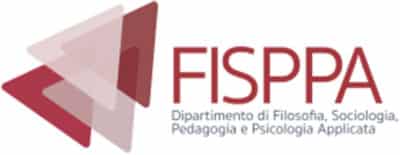
The Master’s Program in Evaluation, Training, and Development of Human Resources (MIDRU) aims to train professionals in human resource management and leadership, capable of operating at both individual and organizational levels in the areas of evaluation, training, and development. The program emphasizes organizational well-being and performance, risk prevention, and the protection of health and safety, addressing these aspects from psychological, legal-economic, medical, and ethical-deontological perspectives.
The individual is considered both a critical success factor and the recipient of organizational care, to ensure protection and enhancement. This approach, aligned with the latest European and national regulations, also leads to increasing complexity and diversification of professional roles within the field of human resource management.
The Master’s Program in Evaluation, Training, and Development of Human Resources (MIDRU) translates knowledge and experience into specific professional skills.
The program covers several thematic areas:
• Evaluation, selection, organizational diagnosis, risk prevention, and related inter-ventions.
• Training, learning, career guidance, and professional development.
• Legal and economic aspects of work organization, with a focus on health protec-tion and safety.
The MIDRU Master’s Program builds upon the broad and diverse backgrounds of students, gained through prior education and work experience, by converting them into specific professional skills. These are applicable in the field of human resource management, particularly in HR departments, as well as in the areas of evaluation, training and development, work-related risk prevention, and health and safety protection.
Graduates may find employment in public and private organizations, both in production and services, in profit and non-profit sectors, holding high-responsibility or high-profile collaborative roles, or working as independent professionals.
Graduates may find employment in public and private organizations, both in production and services, in profit and non-profit sectors, holding high-responsibility or high-profile collaborative roles, or working as independent professionals.
The Master’s Program in Evaluation, Training, and Development of Human Resources includes the following thematic areas and corresponding courses:
AREA 1 – EVALUATION, SELECTION, ORGANIZATIONAL DIAGNOSIS, RISK PREVENTION, AND INTERVENTIONS
- Theories and techniques of evaluation
- Test theories and techniques, psychometrics
- Psychology and the world of work
- Ethics and responsibility in organizations
- Human resource management and development in the public sector
- Organizational well-being and assessment of work-related stress
- Organizational, management, and control models under Legislative Decree 231/2001
- Preventive strategies and interventions for work-related risks
AREA 2 – TRAINING, LEARNING, CAREER GUIDANCE, AND PROFESSIONAL DEVELOPMENT
- Theories and techniques of training
- Group work and teamwork: team management
- Theory and application of the learning organization
- Diversity management, career guidance, and counseling
AREA 3 – LEGAL AND ECONOMIC ASPECTS OF WORK ORGANIZATION, HEALTH PROTECTION
- Legal aspects of work organization in the private sector
- Legal aspects of work organization in the public sector
- Professional growth and incentive systems
- Economic aspects of work organization and the labor market
- Occupational safety and prevention: from content to regulations
- Theory and practice of industrial relations
- New HRM logics: fostering entrepreneurial skills
The Master collaborates with the Italian Banking Association (ABI), the CISL Study, Research and Training Center, the Veneto Regional Revenue Agency, and the Fenice Foundation (Onlus) for internship opportunities and teaching activities.
Among the members of our faculty are:
- Giovanni Battista BARTOLUCCI
- Laura DAL CORSO
- Giancarlo DURANTE
- Alessandra FALCO
- Roberta MAERAN
- Piero MAESTRELLI
- Angelo MORETTO
- Laura NOTA
- Elena PASQUALETTO
- Alberto VOCI
In addition to in-person and online classes, supplementary educational activities (conferences/testimonials, symposia) may be offered based on the Master’s Director’s proposals and student interests.
Key topics addressed by industry experts in previous editions include:
• New challenges in data privacy and personal data processing
• A renewed vision of public administration and business in light of PNRR developments
• Evaluation methods for personal development: interpreting organizational and business goals
• Human Social Responsibility: the value of communication
• Visual thinking: transforming an idea into a project to support project work execution
The general ranking of merit for the academic year 2025/26 will be published on the Italian page of this Master according to the timing provided in the Call.
Single course
Information
FAQ
The program includes 240 hours of in-person instruction, 60 hours of distance learning (mainly synchronous), and 200 hours of internship/project work.
Classes are held on Saturdays (1 or 2 per month), in dual mode (in-person and online), with some fully online synchronous sessions. Two intensive weeks of daily teaching (also dual mode) are scheduled.
Minimum attendance is 210 hours. Lessons will take place on Saturdays (once or twice a month). The course also includes two weeks of intensive activity with daily lessons (ideally in the months of February and July). The lessons on site will take place at the University of Padua (in Padua and Bressanone), and/or other facilities in both Padua and Bressanone. The internship can be substituted by an individual project work (200 hours).
A 200-hour internship is required.
Students can receive content-related guidance from the Master’s Director and administrative/organizational support from the University’s Career Services.
The internship may be replaced by a 200-hour individual project work.
Three study awards are available.
The awards, valued at €5,000, €3,000, and €2,000 (all-inclusive of institutional charges), may be granted in memory of Dr. Francesco Oliva to students who submit the best final work. The awards are conferred at the sole discretion of a commission chaired by the Master’s Director.
Since the 2022–23 academic year, a €5,000 scholarship named after Nicola Alberto De Carlo, founder of the Master’s program, has been available.
Yes, minimum attendance is 210 hours (70% of the total amount).
The proposed calendar can be consulted in the Program section.

